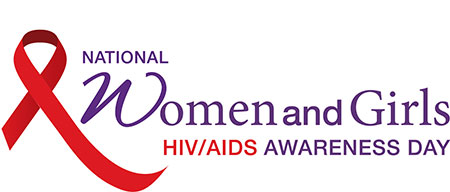HRSA Recognizes National Women and Girls HIV/AIDS Awareness Day
Topics

On March 10, the Health Resources and Services Administration (HRSA) will join millions of people across the country to commemorate the 11th annual National Women and Girls HIV/AIDS Awareness Day. This observance highlights the impact of HIV and AIDS on this population and raises public awareness about the challenges women and girls face when accessing needed care and treatment services. The 2016 theme is “The Best Defense is a Good Offense.”
HRSA funds programs and primary care providers who play an integral role in providing care, treatment, and prevention services to the most vulnerable populations of people living with HIV. The agency has made a concerted effort to focus attention and resources to meet the unique needs of both women and girls, populations that continue to face HIV-related health disparities. Below is a snapshot of some of HRSA’s activities:
Ryan White HIV/AIDS Program
HRSA’s Ryan White HIV/AIDS Program (RWHAP) serves a significant proportion of women living with HIV. In 2014, nearly 145,000 of the close to half a million clients served by the Program were female, more than 8,100 female clients are between the ages of 15 to 24 years old, and more than 3,300 female clients were younger than 13 years old. As the largest Federal program exclusively providing HIV care and treatment services to people living with HIV in the U. S., RWHAP works with cities, states, and local community-based organizations to provide a comprehensive system of care to those who are uninsured and under insured.
Each part of RWHAP has a focus on serving the needs of women, infants, children and youth, as well as RWHAP Part D, which provides outpatient or ambulatory family-centered primary medical care and support services. In addition, the Special Projects of National Significance (SPNS) Program has funded several demonstration projects focused on adolescent care, as well as engagement in care initiatives for women of color and transgender women of color to improve timely entry, access to, and retention into quality HIV care.
Technical Expert Consultations
HRSA’s HIV/AIDS Bureau (HAB) partnered with the Office of the Assistant Secretary for Planning and Evaluation (ASPE) in 2015 to hold two technical expert consultations on the topics of youth and HIV and women living with HIV , respectively. The purpose of these two consultations was to identify strategies aimed at improving retention in care, medication adherence, and viral suppression for youth aged 13–24 living with HIV who receive RWHAP-funded services as well as discuss models of care and strategies to improve care for women living with HIV who are served by RWHAP. In addition, HAB partnered with the National Institutes of Health to host a third technical expert consultation on trauma and HIV , which discussed trauma treatment and research to review the evidence for implementing care practices that address trauma in RWHAP. As part of this consultation, the experts highlighted the needs of special populations specifically impacted by trauma, including youth and minority women.
Intimate Partner Violence Pilot Project
HRSA’s Office of Women’s Health, in collaboration with HRSA’s Bureau of Primary Health Care, and the U.S. Department of Health and Human Services Office on Women’s Health and the Agency for Children and Families, is leading a two-phase pilot program to support intimate partner violence (IPV) screening and counseling in community health centersExit Disclaimer IPV can be both a risk factor for HIV and a consequence of HIV, which can, in turn, inhibit access to care and treatment adherence. This project supports nine HRSA-funded community health centers and their identified local IPV social service partner with technical assistance and training. In addition, the pilot project includes a robust evaluation component for both phases to help develop a toolkit to assist other health centers in integrating IPV screening and counseling into practice. Of note, four of the community health centers involved in the pilot project are dually funded by RWHAP and the Health Center Program.
Partnerships for Care
HRSA is currently participating in a three-year, multi-agency project called “Partnerships for Care: Health Departments and Health Centers Collaborating to Improve HIV Health Outcomes,” which enables HRSA-funded health centers to work with Centers for Disease Control and Prevention-funded state health departments to expand the provision of HIV prevention, testing, care and treatment services, especially among racial/ethnic minorities, including women living with HIV. The $11 million initiative, funded through the Secretary’s Minority AIDS Initiative Fund and the Affordable Care Act, supports innovative partnerships between health centers and state health departments in Florida, Maryland, Massachusetts, and New York and supports the goals of the National HIV/AIDS Strategy: Updated to 2020.
For more information about the Health Resources and Services Administration, visit www.hrsa.gov. For more information about the Ryan White HIV/AIDS Program, visit www.hab.hrsa.gov. For more information about the Bureau Primary Health Care, visit www.bphc.hrsa.gov.